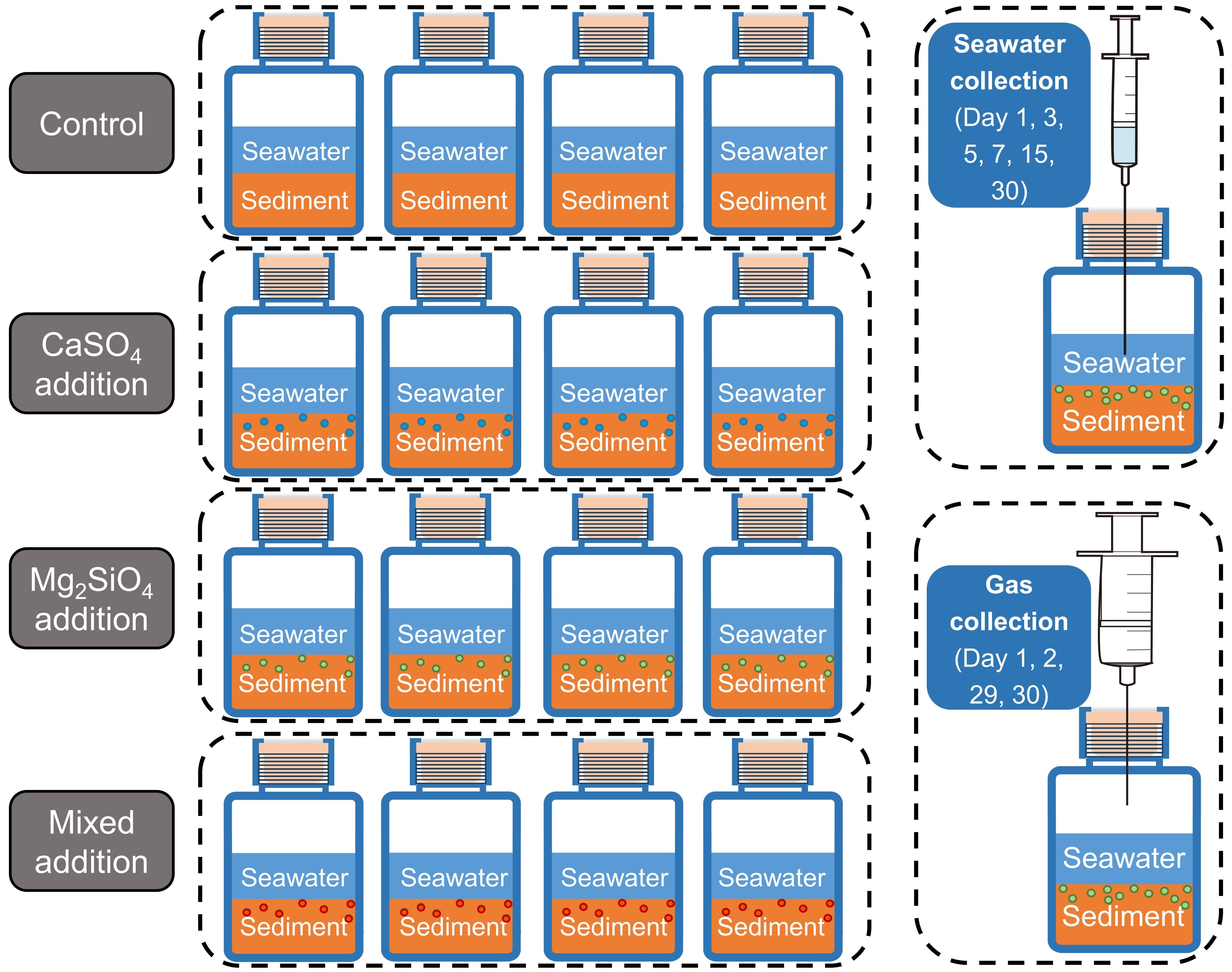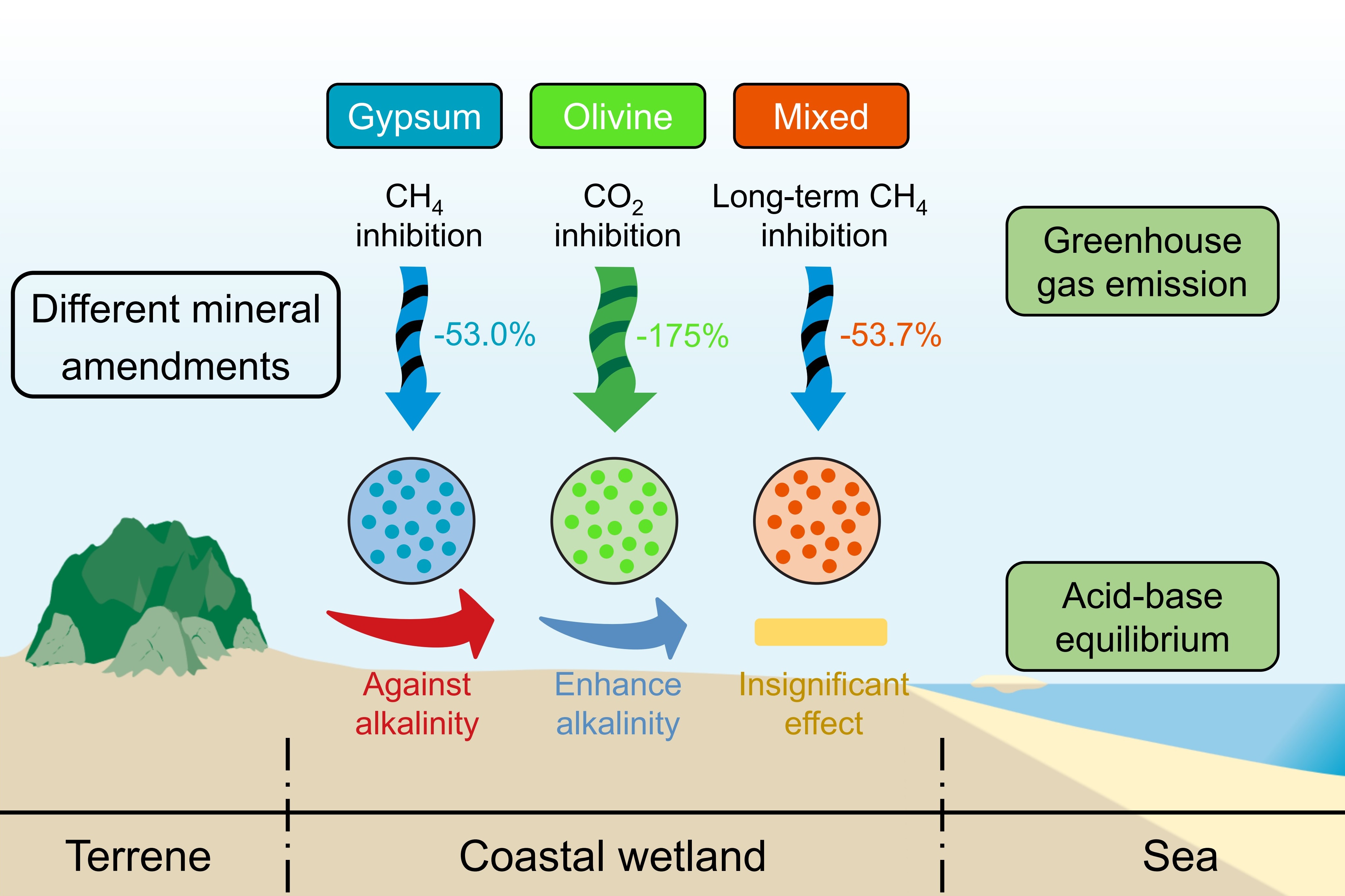Researchers Revealed the Effects of Mineral Amendments on Greenhouse Gas Emissions and Seawater Alkalinity in Coastal Wetlands
In an era marked by escalating global warming and ocean acidification, researchers have turned their attention to mineral amendments in coastal areas as a promising strategy to enhance carbon sinks and seawater alkalinity. A recent study conducted a microcosm incubation experiment using coastal wetland sediments to explore how different mineral additions can regulate greenhouse gas emissions (CO2 and CH4) and seawater alkalinity. The findings highlight the potential of olivine and gypsum used together to reduce methane emissions without negatively impacting seawater alkalinity and ion bioavailability.
The research showed that olivine effectively absorbed CO2, achieving a 175% reduction in the later stages of the experiment. Notably, while olivine alone might affect magnesium ion effectiveness, which could influence biological processes relying on these ions, its combined use with gypsum mitigates this issue. Gypsum application significantly cut CH4 emissions by 53% early on but led to decreased seawater alkalinity, potentially exacerbating ocean acidification. The simultaneous application of both minerals emerged as a sustainable approach to managing coastal wetlands. The proposed approach can alleviate ocean acidification, reduce CH4 emissions, and maintain the bioavailability of essential metallic elements. This innovative solution supports efforts to mitigate climate change, particularly in human-impacted coastal regions.
Building on these findings, future work will delve into practical applications and implications for global environmental policy. Researchers emphasize the need for interdisciplinary collaboration to ensure mineral amendments provide environmental benefits while safeguarding ecosystem services. This study underscores the importance of exploring synergistic approaches to address climate challenges. Policymakers are urged to consider integrating these research outcomes into coastal wetland management plans to promote environmentally friendly practices worldwide.
The research findings were published online in Science of the Total Environment. ZHOU Jinge, a doctoral student at the South China Botanical Garden, is the first author of the paper. At the same time, Professor WANG Faming, the head of the research group, is the corresponding author. This study was supported by the National Key Research and Development Program of China, the CAS Project for Young Scientists in Basic Research, the National Natural Science Foundation of China and so on. The article link is: https://doi.org/10.1016/j.scitotenv.2024.178128

Fig. 1. The experimental design of the microcosmic incubation experiment and related devices of seawater and gas collection (Image by WANG et al)

Fig. 2. The impact of different mineral additions on greenhouse gas emissions and seawater alkalinity (Image by WANG et al)
File Download: